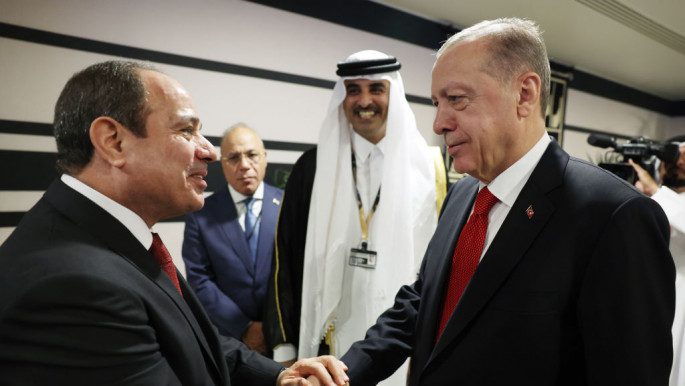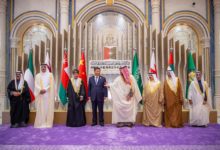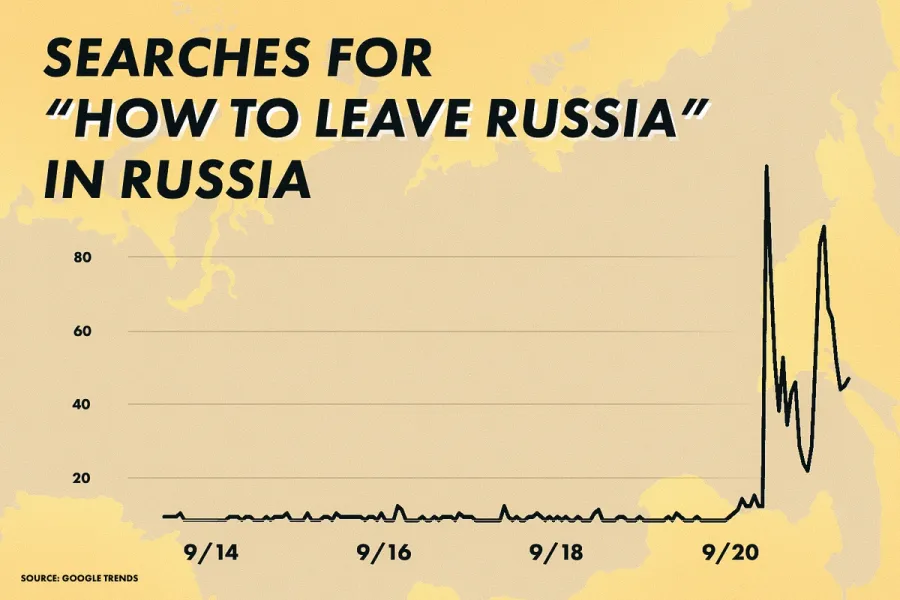
The New Area of Middle East’s Diplomacy
Analysis: Since 2020, governments have pursued far more transactional partnerships in order to achieve stability and economic opportunity while seeking to control ideological issues.
Since 2020, Middle Eastern and North African (MENA) governments have grown significantly more diplomatic in their relations with one another.
Governments are seeking far more transactional relationships in the quest of stability and economic, trade, and investment possibilities, while also striving to control ideational issues.
Today, the area appears quite different from the period following the Arab Spring protests of 2010/11, when conflicting ideologies and governments’ promises to standing up for certain causes fuelled high levels of tension.
This tendency has been fuelled by at least three primary causes.
Firstly, the economic impact of the Covid-19 epidemic in the MENA area was particularly unfavourable. Governments were fast seeking for measures to reduce the expense of their foreign policy.
It was simple to begin by reducing clashes and interminable proxy warfare while seeking more economically rewarding connections.
Then there’s the issue of US leadership. Under the Trump administration, the White House treated the area in ways that favoured maximalist behaviour from powers such as Saudi Arabia and the UAE (UAE).
A case in point was the embargo of Qatar in mid-2017. But, with Joe Biden’s election in 2020, Riyadh, Abu Dhabi, and other capitals expected his government to be less ready to unreservedly support their more belligerent foreign policies.
This altered the incentives for aggressive behaviour. Moreover, there is cause to doubt whether the embargo of Qatar would have ended in January 2021 if Trump had won a second term two months sooner, or whether it would have begun at all if Hillary Clinton had defeated Trump in 2016.
Finally, MENA states such as Turkey, Saudi Arabia, Egypt, and the UAE appeared to recognize that their aggressive foreign policies had limits in terms of advancing their national interests.
In Ankara’s instance, it was evident that strong support for the Muslim Brotherhood cost Turkey dearly, particularly in terms of ties with affluent Gulf Cooperation Council (GCC) members that saw Turkey’s Islamist-friendly foreign policy as menacing.
Similarly, assaults on Saudi and Emirati tankers and energy infrastructure in 2019 highlighted how Riyadh and Abu Dhabi’s tough attitudes against Tehran – and lobbying of the Trump administration to apply “maximum pressure” on the Islamic Republic – could not insulate them from the perceived Iranian threat.
It is surprising how rapidly the region has come together over the last three years. Moreover, only a few years ago, the region’s relationships, notably rivalries, appeared very different.
Since 2021, Turkey and Qatar have patched relations with the UAE, Saudi Arabia, and Egypt, establishing themselves as the principal supporters of the Muslim Brotherhood and other Islamist causes.
In the midst of major economic concerns in Turkey, as well as financial and humanitarian issues caused by the earthquakes on February 6, the country can profit from strengthened relations with the UAE and Saudi Arabia.
Both Gulf states have actively assisted Turks in dealing with the aftermath of last month’s devastating natural catastrophes. Their investments in Turkey’s economy are likewise significant.
Additionally, strengthening economic ties between Turkey and these Gulf states may result in increased Turkish investment in the Saudi and Emirati economies in non-hydrocarbon industries ranging from hospitality to entertainment and tourism.
Given the size of the economies of Turkey, Saudi Arabia, and the UAE, stronger links between them can permit significant development in the next term.
After surviving the 2017-21 embargo, Qatar now seeks to pursue an all-friends foreign strategy in the region. Doha officials feel that maintaining good relations with the Arabian Peninsula and Egypt is in their country’s long-term interests.
Since these two GCC members began contacting Tehran in 2019 and 2021, respectively, both the UAE and Saudi Arabia have reduced their hostilities with Iran.
The return of Abu Dhabi’s ambassador to the Islamic Republic last year, as well as the Saudi Iranian diplomatic agreement announced earlier this month, were momentous milestones with enormous repercussions for the Gulf.
At the same time, several of the governments that had previously called for Bashar al-departure Assad’s following the outbreak of the Syrian crisis in 2011 have now reconciled with Damascus and are working for Syria’s re-admission to the Arab League.
Saudi Arabia’s apparent decision to re-establish official diplomatic relations with Syria after the holy month of Ramadan marks a watershed moment in the Assad government’s diplomatic reintegration into the Arab world.
The Syrian president’s travel to Riyadh later this year, following his recent visits to the Sultanate of Oman and the United Arab Emirates, would be immensely symbolic.
These ideological conflicts between nations, to be sure, have not vanished.
For example, Iran’s backing for regional opposition organizations such as Hezbollah will continue to be a source of contention in Tehran’s ties with Saudi Arabia, Bahrain, and the UAE.
Yet, regional governments have recognized that it is in their national interests to develop ways to de-escalate, manage, and regulate these tensions rather than allowing them to increase.
Global Power Implications
It is impossible to foresee how these regional rapprochements will play out in the coming years. It is uncertain if the region is entering a sustained period of cordial relations amongst local players or is enjoying a momentary freeze in hostilities that will soon resume. Yet, the ramifications for the West, Russia, and China must be considered.
To emphasize the obvious, these warming connections present significant opportunities for external countries with vested interests in the area.
If politicians in this region remain focused on diplomacy and there is less conflict among governments in the region, Western countries might use opportunities to increase collaboration in the face of global concerns that should unite all of mankind.
By the same token, some officials in Washington prefer to view the area in zero-sum terms, implying that any soft-power advances made by Beijing or Moscow will come at the price of the US.
The extent to which many US officials reacted badly to last month’s Saudi Iranian diplomatic accord due to Beijing’s participation in it demonstrates this point.
Despite the fact that many in the US see China’s growing diplomatic influence in the region as a threat to the West’s interests, Washington officials should recognize that greater stability in MENA countries and warmer relations between them can bode well for the interests of the entire world, including the US.







